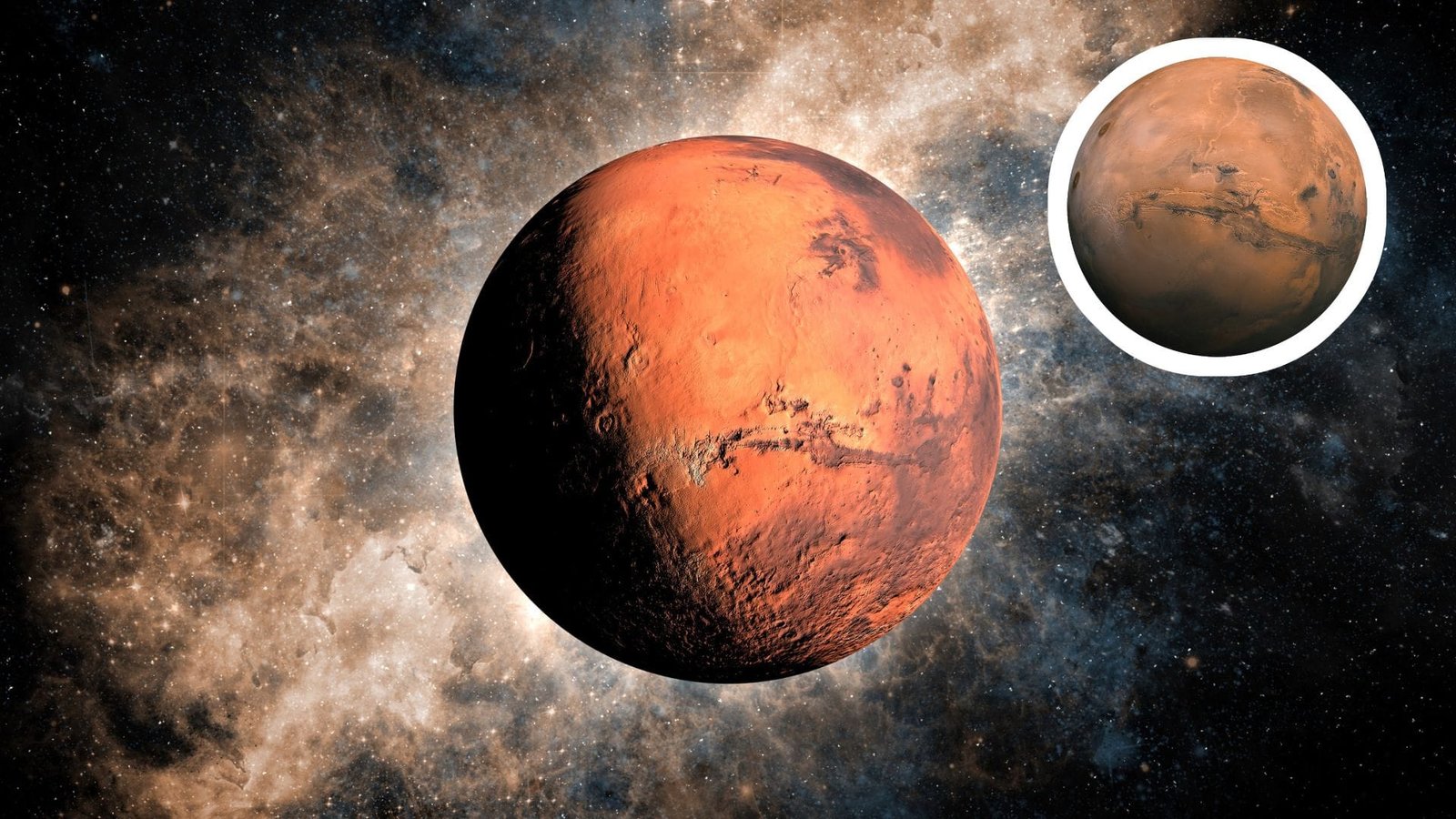
Introduction to The Last of Us
‘The Last of Us’ is an acclaimed franchise that originated as a widely popular video game developed by Naughty Dog. Released first in 2013, the game captivated audiences with its richly developed characters and engaging narrative, set in a post-apocalyptic world ravaged by a fungal infection. The profound themes of survival, companionship, and resilience in the face of adversity resonated deeply with players, contributing to its critical acclaim and numerous awards.
Building on its success, ‘The Last of Us’ was adapted into a television series by HBO, debuting to a wider audience. The show has been praised not only for its fidelity to the source material but also for its ability to expand the narrative, allowing for deeper character exploration and emotional impact. The storytelling adeptly balances intense action sequences with quieter, poignant moments that reveal the emotional depths of its central characters. The adaptation preserves the essence of the game, focusing on the tumultuous relationship between Joel, portrayed by Pedro Pascal, and Ellie, played by Bella Ramsey. Their journey through a desolate world symbolizes the struggle for hope and connection amidst despair.
As ‘The Last of Us’ continues to gain momentum, anticipation builds around the upcoming ‘Last of Us Season 2’. Fans are eager to see how the story will evolve and how new characters and plotlines will be introduced. The delicate balance between telling a compelling story and maintaining the integrity of the beloved game is a challenge that the creators have embraced with commitment. With rich storytelling at its core, ‘The Last of Us’ invites viewers into a gripping world where survival is paramount, and human connection is both a strength and a vulnerability.
Pedigree of the Cast: Pedro Pascal and Bella Ramsey
Pedro Pascal and Bella Ramsey have both made significant marks in the entertainment industry prior to their roles in the acclaimed series “The Last of Us.” Pascal, known for his versatility, has captivated audiences in various high-profile roles across different genres. He gained widespread recognition for his performances in “Game of Thrones” as Oberyn Martell and in “The Mandalorian,” where he deftly balances the complexities of character while engaging viewers in an epic narrative. His ability to convey emotion through subtle actions makes him an ideal fit for the post-apocalyptic drama found in “The Last of Us.”
On the other hand, Bella Ramsey, who first garnered attention for her impressive portrayal of Lyanna Mormont in “Game of Thrones,” showcases a remarkable depth in her ability to embody both strength and vulnerability. These qualities are crucial for her role as Ellie in “The Last of Us.” Ramsey’s interpretation of Ellie demands a unique blend of toughness and sensitivity, reflecting the character’s struggles amidst an unforgiving world. Her previous work demonstrated her skill at bringing complex young characters to life, making her casting a well-considered choice for this pivotal role.
Both actors have an undeniable chemistry that translates into their performances, effectively capturing the essence of their characters and enhancing the overall narrative of “The Last of Us.” As they reprise their roles for “The Last of Us Season 2,” audiences can anticipate an evolution in both characters, driven by the dynamic and layered portrayals by Pascal and Ramsey. Their ability to navigate emotional landscapes while facing dire circumstances will likely contribute to the continued success of the series. With their strong backgrounds and proven track records, both Pedro Pascal and Bella Ramsey set the stage for a gripping continuation of the story in the upcoming season.
The Story So Far: A Recap of Season 1
The Last of Us, an adaptation of the acclaimed video game, whisked viewers into a post-apocalyptic world ravaged by a fungal pandemic. At its core, the narrative follows Joel, played by Pedro Pascal, a hardened survivor, and Ellie, portrayed by Bella Ramsey, a teenage girl who holds the key to potentially saving humanity. The backdrop is a bleak landscape, peppered with danger, as both characters navigate through hostile environments while grappling with their trauma and losses.
The season opens with a pivotal prologue that establishes the onset of the Cordyceps infection. Viewers are introduced to Ellie, who is initially portrayed as a spunky, resourceful teenager living in a quarantine zone. As the story progresses, Joel, tasked with smuggling Ellie out of the oppressive regime that governs the zone, finds himself reluctantly taking on the role of protector. Their journey leads them through a series of harrowing encounters, emphasizing the constant threat posed by both the infected and human adversaries. This juxtaposition serves to deepen the character development, showcasing Joel’s protective instincts alongside Ellie’s growing resilience.
<psignificant a="" and="" bond,="" character.="" charged="" confrontations="" daughter="" decisions.
Throughout the season, the story unfolds through various flashbacks and character arcs, presenting a complex understanding of the choices made by Joel and Ellie. As they venture into uncharted territories, both physically and emotionally, viewers are left with an anticipation for the complications that await in the upcoming episodes of Last of Us Season 2.
What to Expect in Season 2: Plot Predictions and Theories
The immensely popular series, The Last of Us, has left fans on the edge of their seats, eagerly anticipating the upcoming Last of Us Season 2. Following the gripping conclusion of the first season, there are numerous plot predictions and theories circulating within the fan community that point to exciting developments ahead. One of the main arcs likely to be explored is the continued journey of Ellie and Joel, as they navigate the complexities of their relationship in a world fraught with danger.
Fans speculate that the story may delve deeper into the backstory of Joel, revealing more about his past and how it influences his bond with Ellie. Additionally, viewers are enthusiastic about the potential introduction of new characters who could either assist or hinder their quest. Some theories suggest that villains will emerge from unexpected places, challenging the protagonists in new ways. The creators of The Last of Us have hinted at the expansion of this post-apocalyptic universe, allowing for a wider range of narratives and character interactions.
Furthermore, the unpredictable nature of the infected serves as a prime canvas for speculation. It is anticipated that the threat of new types of mutations or even evolved forms of the infected will play a significant role in intensifying the stakes. With the game source material providing an expansive world, fans are excited about the potential divergences and adaptations that could occur in Last of Us Season 2.
As we look forward to the Last of Us Season 2 release date, the anticipation only grows stronger. The questions surrounding plot direction, character development, and emerging conflicts continue to stimulate conversations among fans. The potential for unexpected twists in the narrative is vast, and as such, the speculation endures, leaving the audience eager for the new season’s exploration of this hauntingly beautiful yet perilous world.
Themes and Motifs: Exploring the Depth of the Narrative
The narrative of The Last of Us delves deeply into the intricacies of human relationships and the various themes that arise in a post-apocalyptic setting. One of the most prominent themes is the complexity of love, which often appears in forms that are both profound and tragic. The bond between Joel and Ellie exemplifies this complexity; their connection evolves from initial necessity to a deep, almost familial love forged in the crucible of survival. This portrayal highlights how love can act as both a motivator and a source of vulnerability in dire circumstances, prompting viewers to reflect on what they would sacrifice for those they care about.
Loss is another significant motif throughout the series. Characters grapple with the weight of their pasts, enduring profound losses that continue to shape their actions and decisions. This exploration of grief resonates strongly with audiences, as it mirrors many real-world experiences of bereavement and highlights the universal nature of loss in the human condition. The emotional scars carried by characters serve as a reminder that in a world where everything can be taken away, the process of mourning becomes fundamental to human survival.
Moral dilemmas pervade the storyline, inviting viewers to question the ethics of survival in an unforgiving environment. Characters often face challenges that force them to confront their moral beliefs, leading to difficult choices with far-reaching consequences. By placing characters in such morally ambiguous situations, the last of us compels its audience to consider the broader implications of their actions in a society where conventional morality has been upended. The struggles between right and wrong are not just matters of survival; they reflect the ongoing conflicts within our own society.
In conclusion, the overarching themes of love, loss, and moral dilemmas in the last of us provide a rich narrative tapestry that resonates with current societal issues, enhancing the depth of character arcs and relationships throughout the series. As viewers await the last of us season 2, these enduring themes will likely continue to unfold in new and compelling ways.
Behind the Scenes: The Creative Team and Production Insights
The successful adaptation of “The Last of Us” into a television series owes much to the strategic vision and creativity of its producers, writers, and directors. The core team, led by showrunners Craig Mazin and Neil Druckmann, aimed to transform the beloved video game experience into a multifaceted narrative that resonates with both fans of the original and newcomers alike. This duality posed a significant challenge, as the team needed to balance fidelity to the source material while exploring deeper character arcs and themes that could only be realized in a long-format storytelling medium.
One of the most critical aspects of their approach was retaining the emotional core of the narrative. The show’s creative team understood that “The Last of Us” is not just a story about a post-apocalyptic world ravaged by a fungal infection but also about the relationships built and shattered within it. Through meticulous casting—such as bringing back Pedro Pascal and Bella Ramsey—their vision for the characters was brought to life with exceptional depth. The actors’ performances have been crucial in portraying the intricate bonds and struggles faced by their characters in a harsh environment.
The production also faced the daunting task of capturing the essence of the game’s world. Filming locations had to evoke the same haunting beauty and desolation found in the original game. The team employed advanced cinematography techniques along with practical effects to create an authentic atmosphere. While adapting the storyline, they remained committed to the themes of love, loss, and survival, which are integral to “The Last of Us” experience. In expanding the universe, the writers have carefully crafted new narratives that maintain the authenticity fans appreciate, ensuring that the legacy of “The Last of Us” continues to thrive in “The Last of Us Season 2.”
Audience Reception and Critical Acclaim
The Last of Us has garnered widespread acclaim from both audiences and critics since its debut. The adaptation of the beloved video game has set a new benchmark in translating interactive narratives into compelling television. Critics praised its emotional depth, character development, and cinematography, with many highlighting the performances of Pedro Pascal and Bella Ramsey. Their portrayal of Joel and Ellie resonated deeply with viewers, contributing significantly to the show’s overall success. According to Rotten Tomatoes, the first season holds a remarkable approval rating, demonstrating a strong consensus among critics regarding its outstanding quality.
Viewer engagement with The Last of Us has been exceptional, with many fans expressing enthusiasm on social media, forums, and fan sites. Audience ratings reflect this reception, as the show has consistently ranked among the top shows across various platforms. This positive response has not only solidified its place in popular culture but has also built a substantial anticipation for the upcoming episodes of The Last of Us Season 2. As fans speculate about the new storylines and character arcs, the excitement surrounding the release date continues to grow.
The narrative structure of the first season effectively blended action with poignant storytelling, providing insight into the characters’ motivations while maintaining a thrilling pace. The emotional weight of the storyline and its ability to address complex themes such as loss, survival, and human connection contributed to the series’ critical acclaim. Viewers appreciated the strong writing and direction, noting that the adaptation faithfully honors its source material while offering fresh perspectives. As the last of us season 2 approaches, the stakes are high, and expectations are even greater, making the continuation of this post-apocalyptic journey highly anticipated.
Cultural Impact and Significance of The Last of Us
‘The Last of Us’ has emerged as a landmark achievement in the realm of video game narratives and television adaptations, significantly influencing both the entertainment industry and the broader cultural landscape. The series is not merely a story about survival in a post-apocalyptic world; it delves deeply into complex character developments and moral dilemmas, challenging traditional storytelling tropes in both gaming and cinematic experiences. Its portrayal of human relationships amidst calamity has sparked discussions around character depth and emotional engagement, which have been increasingly necessary in modern storytelling.
The impact of ‘The Last of Us’ extends beyond its narrative. Its characters, particularly Joel and Ellie, offer representations that resonate with diverse audiences, prompting conversations about identity, sacrifice, and morality. The dynamic between these characters promotes empathy and reflection, allowing viewers and players to interact with themes that are relevant to real-world societal issues. Consequently, the series has shifted the discourse around video game narratives, showcasing that they can be as impactful and significant as traditional films and television shows.
Furthermore, the cultural response to ‘The Last of Us’ has cultivated a passionate fanbase that actively engages with the content through various forms of media, including fan art, discussions, and cosplay. This active participation helps foster a community that celebrates creativity and encourages diversifying the representation in storytelling. As anticipation builds for the ‘Last of Us Season 2,’ there is a palpable sense of excitement surrounding how the continuation of the story will further explore these themes and characters. By pushing boundaries and encouraging deeper conversations, the series has solidified its place in the pantheon of modern storytelling.
Conclusion: Anticipation and Final Thoughts
As we approach the much-anticipated return of Pedro Pascal and Bella Ramsey in the second season of The Last of Us, excitement continues to build among fans and newcomers alike. The emotional narratives and profound character development that characterized the first season have set high expectations for what lies ahead. With the grand scale of the post-apocalyptic world and the harrowing journey faced by the protagonists, viewers are eager to see how the story will evolve in The Last of Us Season 2.
The return of these beloved characters promises not only action-packed episodes but also a deeper exploration of their relationships and individual struggles. The new season is expected to introduce fresh challenges and adversities, allowing audiences to connect with Joel and Ellie on a raw emotional level. As the second season prepares to unfold, fans are invited to speculate about the direction of the storyline and the potential character arcs that may develop. This is an opportunity for the audience to engage in discussions and theories, enriching the community surrounding The Last of Us.
Moreover, producers have hinted at unexpected twists and engaging plotlines, making the release date of The Last of Us Season 2 a pivotal moment in modern television history. As we wait for the launch, the anticipation is palpable, and the conversations surrounding the series will undoubtedly intensify. It is an exciting time for fans to reflect on their experiences with the show and to look forward to the unfolding narrative. We encourage our readers to share their thoughts, predictions, and theories as we prepare to dive into a new season filled with intense drama and unforgettable moments.







